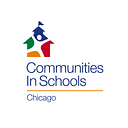Chicago Students Make Strong Progress with Learning Recovery; Will Need Continued Support
In the earliest stages of Covid, the data on learning loss was sobering. In 2022, researchers estimated that public-school students in big cities like Chicago had lost as much as four months of learning in reading and five months in math, with students from high-need families experiencing even greater fallout.
That reversed a decade of strong academic gains, which had made Chicago Public Schools a stand-out for learning gains among urban districts.
The extent of the Covid social disruptions was so severe that news outlets as well as NGOs like UNICEF warned of a lost generation of students unless massive and sustained investments in learning recovery were made.
In 2021, CPS began sharing details on how it planned to recoup lost learning in Chicago. Backed by more than a half-billion dollars in federal pandemic relief money, the District’s “Moving Forward Together” plan incorporated a variety of school-based strategies.
These included district-wide social-emotional and healing-centered resources to ensure all schools had robust behavioral and mental health teams offered by both CPS staff and community partners like Communities In Schools; a $20M investment in classroom technology; a $25M investment in hundreds of literacy tutors; and supplemental investments in summer school and out-of-school programming.
Signs of Learning Recovery
Three years on, we are now beginning to see how these investments have paid off. In late February, CPS’ CEO Pedro Martinez presented a state of the district presentation at the City Club, and his message that day was nuanced but upbeat.
A new joint study by Harvard and Stanford called the Education Recovery Scorecard had recently been released, and its findings were a centerpiece of his remarks. The study examined reading and math achievement between 2019 and 2023 for students in grades 3rd through 8th based on results from state-administered standardized tests.
The study confirmed that in math, the average CPS elementary student lost ¾ of a year of learning between 2019 and spring 2022 — which Chief Martinez identified as the low-point of the pandemic-era learning loss. Reading scores dropped less during that time — about ¼ of a grade year — but that still represented almost 3 months of lost learning.
Expectations were tempered when the 2023 test season arrived. There was hope that CPS’ recovery initiatives had begun to make a positive difference; at the same time, experts cautioned how long the road to learning recovery would be.
Fair to say that the growth observed for students in spring 2023 surprised many to the upside. In math, students on average gained 1.33 school years of learning in 2022–23, cutting into the learning deficit that had built up in previous years of the pandemic.
That growth in math placed CPS in the top third of big city districts for learning recovery in the subject, though it’s important to point out that absolute math achievement remained below what it was in 2019.
The story in 2023 for reading was better. In that subject, CPS ranked first among 43 large school districts, with the average student gaining well over a year of learning in 2022–23 and recovering an estimated 6 months of cumulative lost learning registered during the 2019–2022 period.
More encouraging: students’ absolute levels of achievement in reading were actually higher in spring 2023 than they were in spring 2019, before Covid-19 hit. And even more good news: the report showed that CPS’ Black and Latino students showed some of the highest net gains in learning compared to other large districts.
Chief Martinez’s zeroed in on 3 areas of strategic investment, which he described as key drivers of the learning gains that were seen last year: Learning Acceleration, Extended Learning Time, and Emotional and Behavioral Health Support.
CIS of Chicago’s work fits squarely within the category of Emotional and Behavioral Health Support. When the District talks about investing in community mental health provider partnerships, it has in mind nonprofit organizations like CIS that offer a range of supports to individual high-need students, to groups of students with shared challenges, as well as to the entire student body of each of our school partners.
CIS of Chicago’s Role in Learning Recovery
Our school-based Student Supports Managers in our Intensive Program are not tutors or instructional coaches per se. But the work they do plays an important role in helping our young people develop academic readiness. They teach students in grades K-12 age-appropriate executive functioning and self-regulation skills to help them stay organized and maintain concentration as they study.
They also work closely with CIS’ Partnership Team to identify and access academic enrichment partners who offer supplemental resources like tutoring and mentoring.
The reality is that, even with unprecedented investments from the Federal government, CPS can’t do the work alone. The recovery process is undoubtedly fragile, and it’ll take all of us — teachers, school leaders, district administrators, community leaders and organizers, families, and the students themselves, to prioritize learning and ensure that our city’s young people stay on the path to graduation.
